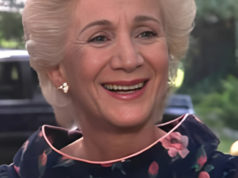Hate to admit it, but the Star-T had a provocative article today about the Cliburn jurors whose students are competing. The practice of including such jurors makes me uneasy, even though the competition has taken measures to prevent favoritism. I’m not sure how you solve this problem. The list of people who feel qualified to judge a classical piano competition is already small, and the list of people whose opinions on the subject are respected is even smaller. How many of those people can be found who are truly neutral about a field of pianists who tend to come from the same select few prominent music schools? It’s hard to put together a jury for a competition like this without including a few people who might potentially have a dog in the fight. The Cliburn’s current leadership seems averse to the solution of the Chopin Competition, which publishes the scores given out by judges for everyone to read. I don’t know; it might work if it’s done like Olympic figure skating, where judges are primarily identified by the country they’re from. Then again, Olympic judges don’t want to be famous, while the judges at the Cliburn are typically prominent and want to be publicized.
Toward the end of the article, Andrea Ahles gets at the fundamental absurdity of judging something as subjective as art. We all agree with this sentiment, but then we all watch the Oscars every year anyway. The operative comparison for the Cliburn probably isn’t the Oscars (whose voting body is much larger than the Cliburn’s) but rather the Cannes Film Festival, which just concluded. A jury composed of film luminaries and headed by Steven Spielberg selected a French lesbian romance called Blue Is the Warmest Color as the winner of the Golden Palm. Even though the pick was unanimous among the jury, it still polarized the festivalgoers in the south of France, which proves that artistic judgments are often controversial just by their existence, and that even when the elites agree among themselves (which is not often), they can differ from the mainstream audience’s opinion. The actors and the filmmakers had little connection to the films they were judging, but then, the world of film is much bigger than the world of classical music. Maybe film isn’t the best analogy to classical music’s situation. How about contests in other art forms? What do we think, readers? How do we make the system more transparent and less open to favoritism without compromising the judges’ rights to make up their own minds?
On a lighter note, I spotted Gustavo Miranda-Bernales and Steven Lin in the seats near me, taking in the semifinal performances today. I gave them both some words of encouragement, and found that my namesake had read my blog post for his screening recital here in Fort Worth.
Khozyainov’s semifinal recital was pretty much what I feared when he was named a semifinalist. As well as he plays short character pieces, he proved to be out of his depth playing larger works. I figured his limitations would make him a poor prospect for the later rounds, which is why I didn’t rate him as a potential semifinalist even though I thought his two first-round recitals were within hailing distance of some of the pianists whom I did rate. The Russian didn’t help himself with his program selection. He delivered a somewhat creditable account of Beethoven’s Sonata No. 31. (So many competitors are playing late Beethoven this year, while we’ve only had one performance of the “Waldstein,” and none of the “Appassionata.” I wonder what’s up with that.) Khozyainov’s recital took a big nosedive with Prokofiev’s Seventh Sonata. This finesse player proved ill-suited for the piece, as the first two movements fell apart structurally, and he smeared lots of notes in the (too fast!) third movement. He struck more wrong notes in the Birichino. The pianist didn’t seem fully at home until his last item, Liszt’s Fantasy on Two Themes from Mozart’s Le Nozze di Figaro (which was completed by Busoni after the Hungarian composer left the piece unfinished at his death). He made some errors in this piece, too, but at least he knew what to do with the piece, even if his confidence seemed a bit dented. He’s only got larger forms ahead of him in the quartet and possibly the concertos. I don’t feel good about hearing him in this competition going forward, even though I’d be happy to hear him outside the competition, performing repertoire that fits his talents. He might be a great pianist yet.
I give props to Deljavan for not repeating a single piece from his program from four years ago. Back in 2009 he played Brahms for the chamber music portion, but this time he played a seamless and altogether enjoyable version of the Dvořák Quintet. I marvel at the Italians’ ability to play chamber music at this competition, but there’s no big secret as to why. The music schools in Italy simply encourage their pianists to play chamber music much more than the schools in other countries. That’s it. Deljavan took the last movement slower than one usually finds it, which I’m not sure I saw the point of. No matter, it was a fine performance.
In his semifinal recital, Gillham turned out mostly to be the Gillham I liked in his Phase I recital, rather than the Gillham I didn’t much care for in Phase II. Wearing a purple shirt and matching tie and looking like a taller, smilier version of Jesse Eisenberg, the Australian started out with the best, most lucid reading of the Birichino I’ve heard so far, finding the melody amid the piece’s dense clusters of chords. He followed that with Chopin’s Rondo, the second performance of the piece we’ve heard in this competition. There’s a reason why people don’t play this work too often; it’s considerably too long. Gillham nevertheless made it sound like a lost (if long-winded) cousin of the ballades and nocturnes. The guy has a lovely touch with Chopin. He then played three selections from Book II of Debussy’s Études. (Sakata performed Book I last night.) Gillham did particularly well with the Étude 12 for chords. He finished with a bristling, lively performance of Brahms’ Handel Variations, which made for an unusual but effective finale.
Chernov’s chamber music performance did not go well. I mean, holy Lord, did it not go well. Perhaps anything after Deljavan’s Dvořák Quintet was bound to seem balky by comparison, but this was a disaster. Where Abrosimov tried to pull himself back, his compatriot didn’t bother about that and played the music as if it were Rachmaninov, while the Brentanos overcompensated by playing really loud. The performance still didn’t reach train-wreck proportions until the last two movements, both of which were taken way, way too fast, with the violins making some alarming noises in their haste to keep up. It was a gruesome musical experience, all in all.
They say that fortune favors the brave. I don’t know if that’s necessarily true, but the Cliburn judges seem to favor those brave enough to program the “Hammerklavier.” A German pianist named Maria Mazo got to the semis after playing only that sonata in the first round, and Chen did the same after taking up one of his two recitals with the piece. He opened his semifinal recital with a skillfully built-up rendition of Ligeti’s Étude No. 13 “L’escalier du diable.” He followed that with a dignified Brahms Variations on an Original Theme and a pretty set of Ravel’s Valses nobles et sentimentales, even if the latter could have used a bit more direction. His Birichino was the best one yet. Are these performances getting better, or am I getting better at listening to it? (One Twitter user put forth a third theory: The pianists are reading music critics’ reviews and responding accordingly, bringing out the humor. Intriguing thought.) Chen wound up with the sixth version of Petrouchka that we’ve heard, and it was ragged. He had some keen insights into the music, but the performance as a whole still came out half-baked. Nevertheless, had this Chen showed up for the first-round recitals, I probably would have expanded by final 13 to include him at least. I feel somewhat better about having him in the semis.
Dong Fei-Fei wound up the evening with a mostly laudable version of Brahms’ Piano Quintet. The native of Shenzhen seems to have a decent feel for the Brahms style; too bad this is the only selection of his on her entire program. There was no shortage of passion or intellect here, but a lack of dramatic tension except for the third movement, when something clicked into place and both she and the quartet tapped into something primal about this tragic piece. She was strong, but there’s still room for improvement.












